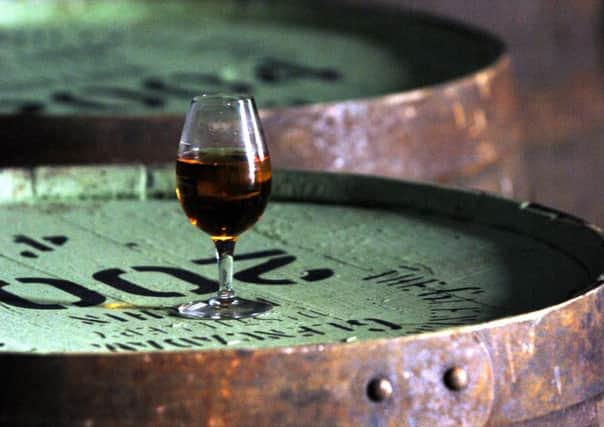Fresh call for distillers to stop using imported grain


John Picken, who farms outside St Andrews, described the use of imported grain to make Scotland’s iconic drink as particularly difficult for cereal farmers in this country at this time as many of them were sitting with full grain bins.
He claimed that apart from the morality of importing grain to make a product which was then sold as thoroughly Scottish, there were aspects of the trade such as food miles which did not make sense in today’s world.
Advertisement
Hide AdAdvertisement
Hide AdHe said: “Ask any person throughout the world, ‘What is Scotch whisky made from?’ The reply would be Scottish grain.”
He wanted to see the whisky trade and Scottish politicians support a move whereby Scottish-grown grain was either uniquely used in making the national drink or where distillers had a policy of “Scotland first” when sourcing their raw materials.
Picken’s call is not new. It has been an item on many NFU Scotland meetings over the past century, but it has been resisted by the distillers who have expressed fear that insufficient grain might to grown in this country to meet their demand – though Picken claimed: “Since 1847, Scotland’s cereal growers have always grown a surplus of grains for the drinks industry.”
Rosemary Gallagher, Scotch Whisky Association spokeswoman, said: “Scotch Whisky is a global success story that adds £5 billion in value annually to the economy. By law, Scotch must be made in Scotland from water, cereals and yeast.
“Distillers are committed to using Scottish-grown cereals whenever possible, with more than 80 per cent of cereals used by the industry grown in Scotland. But, due to such factors as the vagaries of the Scottish climate, flexibility is required to enable the industry to source raw materials of the optimum quality and suitability. This ensures consumers are guaranteed a consistently high-quality product.”
Apart from the imported grain, the supply/demand equation for Scottish cereal growers this winter has been affected by the temporary closure of one of the main outlets, Diageo’s plant at Cameron Bridge.
This facility will re-open at the end of next month, but its closure for upgrading work has resulted in a reduction in demand of thousands of tonnes of home-produced grain.
In calling for support from Scottish politicians, Picken said: “They should support this 100 per cent. Every time they speak they claim the importance of Scottish food and drink.”
Advertisement
Hide AdAdvertisement
Hide AdA Scottish Government spokesperson said: “We understand that the Scotch whisky industry is committed to buying cereals locally wherever possible … and we encourage whisky producers to maximise Scottish sourcing.
“We would encourage all those involved in the Scotch whisky cereals supply chain to work collaboratively to ensure a sustainable Scotch whisky sector that capitalises on its provenance for the benefit for all within this sector.”
